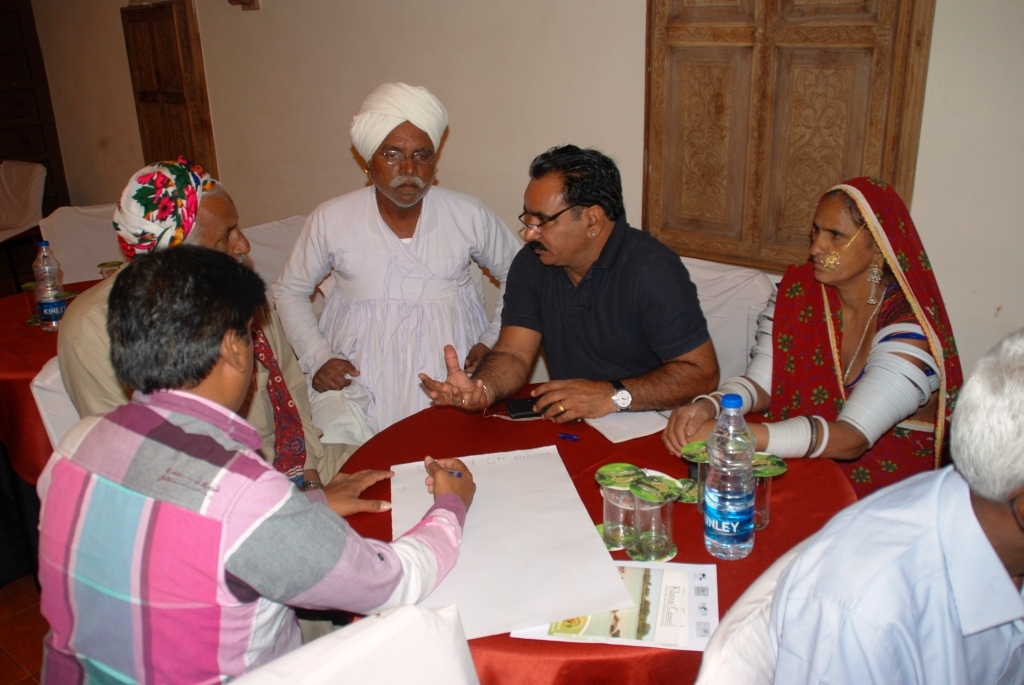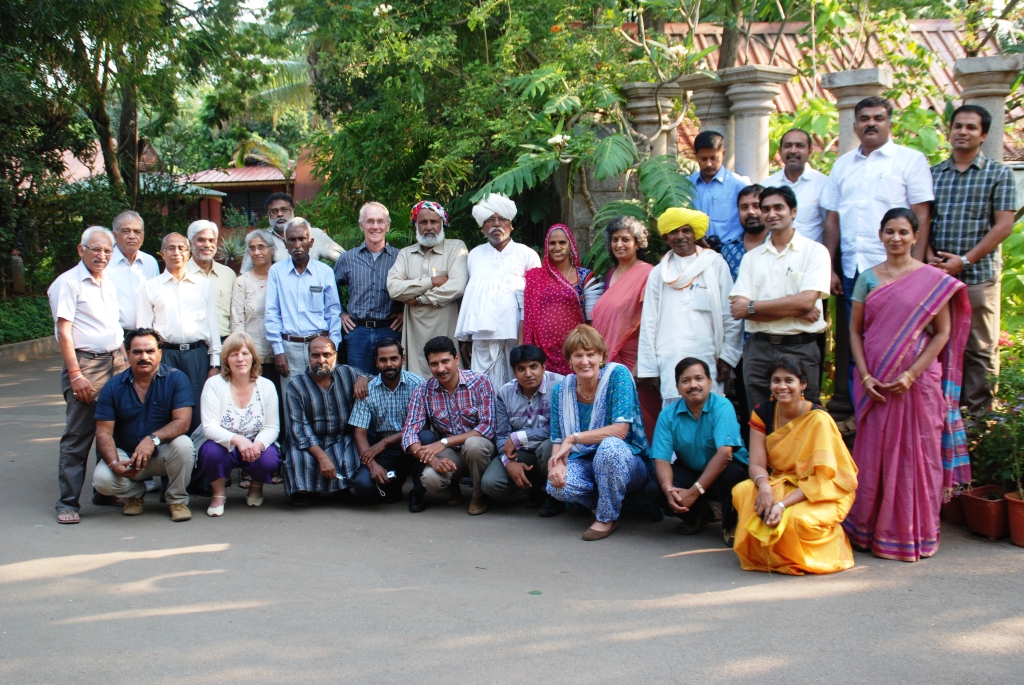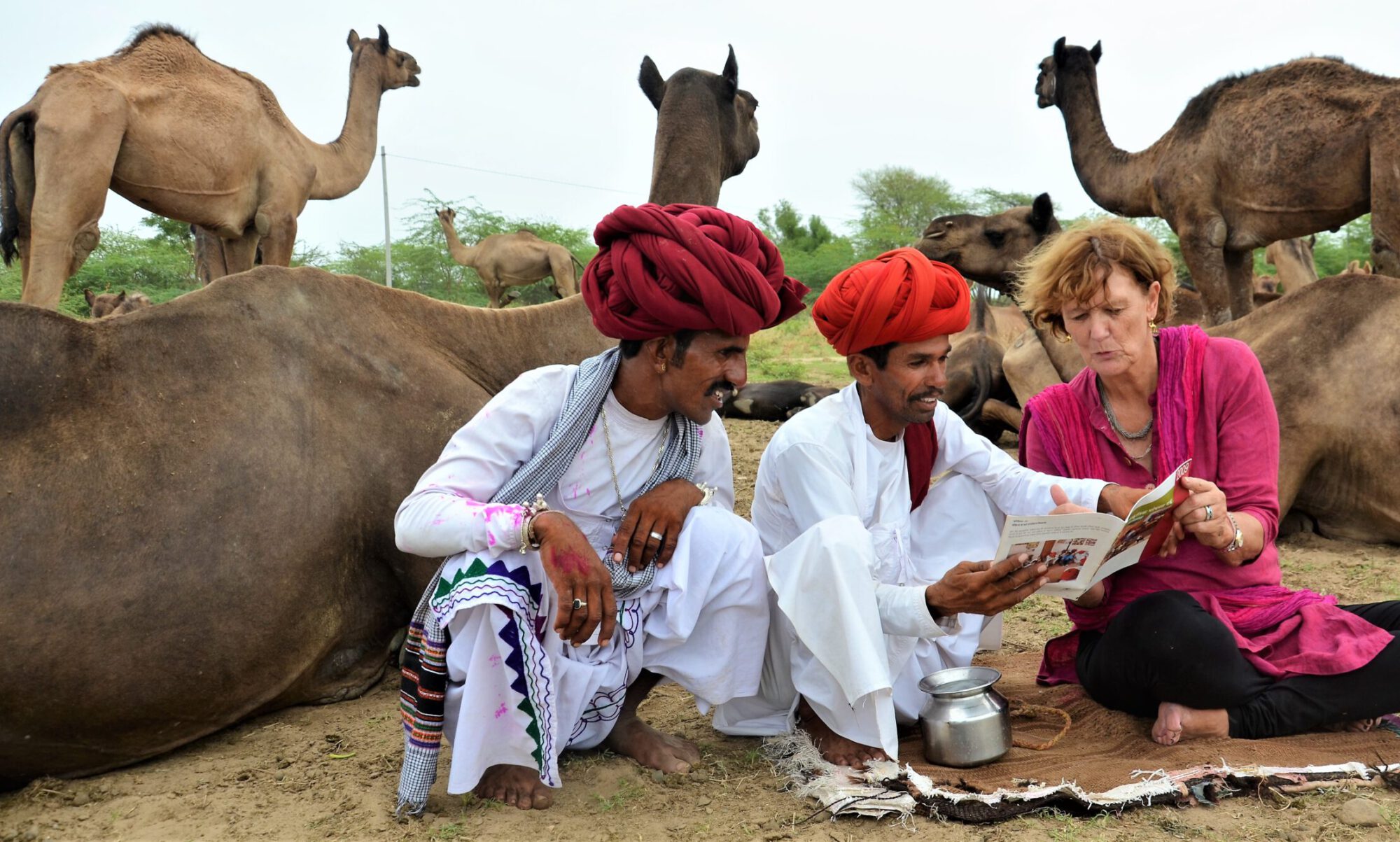
“Physically we are fine, but our minds are uneasy and disturbed” explains Salimbhai, a Banni buffalo breeder from Gujarat (India) and goes on “we don’t know what the future of our animals will be when we our grazing areas are taken away. It is all a question of access to land whether our animals and we will survive.” He is referring to his community’s ancient resource base, the Banni that is known as Asia’s second largest grassland. It has turned into a hotly contested area which the Forest department is fencing in and subdividing for the purpose of “conservation”. Bhikabhai Rebari, a camel breeding colleague from the same area gently shakes his head “Yes, it’s a big problem – I don’t know how we can continue keeping livestock under these circumstances.”
“The forest needs us to thrive” emphasizes Dailibai Raika from Rajasthan, a seasoned campaigner for Livestock Keepers’ Rights who has travelled the world to speak up on behalf of her community. “Our sheep are essential to keep the grass short, preventing forest fires. By eating fallen leaves, they keep the termites in the forest under control. Our livestock helps the forest to recover as tree seeds that have passed through their stomachs germinate much easier and faster. And our community has protected the forest from poachers and loggers – our mere presence keeps them at bay.” Dailibai lives at the edge of the Kumbhalgarh Sanctuary which is slotted to become a National Park, a development that instills fear into the hearts of the local livestock keepers.
“We need to ensure a balance between land used for crops and land available to livestock. In Maharashtra so much land has been taken over by sugar cane cultivation, there is no more place for livestock. And once livestock is gone, farmers become prone to suicides” pleads Nilkanth Kuruba whose community breeds the famous black Deccani sheep.
At a seminar that the LIFE Network organised on 13th April in Hyderabad (India) the representatives of India’s pastoralist communities expressed both deep worries as well as profound wisdom. With their immense experience, they can provide valuable guidance on how to get livestock development onto a sustainable path – an issue that international agencies are increasingly concerned about. But for that their knowledge needs to be respected and their voices to be heard. This is also the task that the LIFE Network India that was constituted on the next day has set itself. As a collaborative effort between NGOs working on livestock and local breeds, herders’ associations and a small group of supporting scientists, this is an immensely important goal. The proceedings of the meeting will be shared here shortly.


 Follow
Follow
LIFE Network efforts are incredible. I feel immense pleasure having colleagues like LIFE partners who struggle for livestock keepers and sustainable ecosystem farming. of livestock.